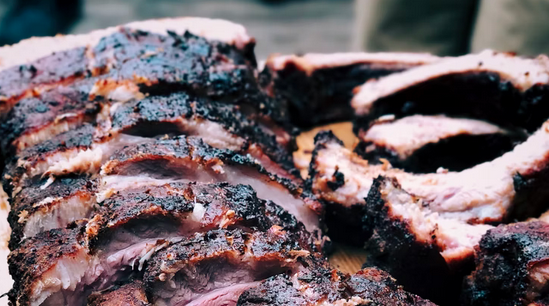What is Carolina Barbeque? For barbecue enthusiasts, the term "Carolina Barbecue" often conjures images of smoky pits and tender meats, yet its precise definition can be elusive. Far from a single, rustic country kitchen, Carolina Barbecue represents a deeply rooted culinary tradition with distinct regional variations, setting it apart from other American barbecue styles. If you love to grill or simply savor delicious smoked meats, understanding the unique characteristics of Carolina Barbecue is essential for appreciating its rich heritage and undeniable flavor.
The Heart of Carolina Barbecue: Whole Hog and Slow Cooking
At its core, traditional Carolina Barbecue is defined by one fundamental principle: slow-cooked whole hog. This isn't just about cooking pork; it's about a ritual, often involving an entire pig cooked for many hours over indirect heat, typically from wood coals. The meat, particularly in Eastern North Carolina, is then pulled or chopped, resulting in a succulent, smoky, and incredibly tender product.
While other parts of the country might focus on ribs, brisket, or shoulder, the whole hog is king in Carolina, particularly in its eastern regions. This meticulous, all-day process ensures every part of the pig—from the crispy skin to the tender shoulder and rich belly—contributes to the final flavor profile.
Sauce is King (But it's Not Ketchup!)
One of the most defining and diverse aspects of Carolina Barbecue, and what truly sets it apart from many other American styles, is its sauce. Forget the thick, sweet, ketchup-based sauces common in the Midwest and Southwest; Carolina barbecue is a world apart.
-
Eastern North Carolina (ENC) Style: This is arguably the most traditional and starkly different style. The sauce is vinegar and pepper-based, often thin and tangy, with a kick of red pepper flakes. It's designed to cut through the richness of the pork, enhancing the meat's natural smoky flavor rather than masking it. There's usually no tomato or sugar in this minimalist, assertive sauce.
-
Lexington/Piedmont Style (Western North Carolina): Moving westward, the sauce evolves slightly. While still vinegar-based, the Piedmont style introduces a touch of ketchup and often some brown sugar or molasses. This creates a sauce that is still tangy but with a hint of sweetness and a slightly thicker consistency, sometimes with a more reddish hue. It might also include a bit of cayenne and mustard, adding layers to the sweet and spicy profile.
-
South Carolina Styles: South Carolina introduces even more diversity, primarily with two distinct types:
-
Mustard-Based (or "Carolina Gold"): Predominantly found in the central part of the state, this vibrant, golden-hued sauce uses yellow mustard as its base, blended with vinegar, sugar (often brown sugar or molasses), and various spices. It's tangy, sweet, and incredibly unique.
-
Light Tomato/Vinegar: Some regions of South Carolina also use a vinegar-based sauce with a lighter touch of tomato, somewhat bridging the gap between Eastern NC and the mustard style.
-
Preparation: Over Coals, Not Flames
While the provided text mentions "prepared over an open flame" and "skewered on a giant spit," this description is a bit generalized for traditional Carolina barbecue. While some modern interpretations might use spits, authentic Carolina barbecue is typically slow-cooked over indirect heat from wood coals, often in large, brick pits. The meat is not usually "skewered" but rather laid out in the pit and cooked for many hours until it is fall-off-the-bone tender. The goal is low and slow cooking, allowing the smoke to penetrate the meat, rather than direct grilling over an open flame. The result is a tender, smoky meat that is then pulled or chopped and often dressed with the regional sauce.
Conclusion:
Carolina Barbecue is a complex and delicious regional cuisine, deeply rooted in tradition and distinguished by its whole hog preparation and unique, non-ketchup-based sauces. Whether you encounter the fiery tang of Eastern North Carolina, the slightly sweeter vinegar-ketchup blend of the Piedmont, or the vibrant mustard-based sauces of South Carolina, you're experiencing a rich piece of American culinary history. It's a style that celebrates the purity of slow-smoked pork, enhanced by sauces that are designed to complement, not overpower, the meat's natural flavors.


